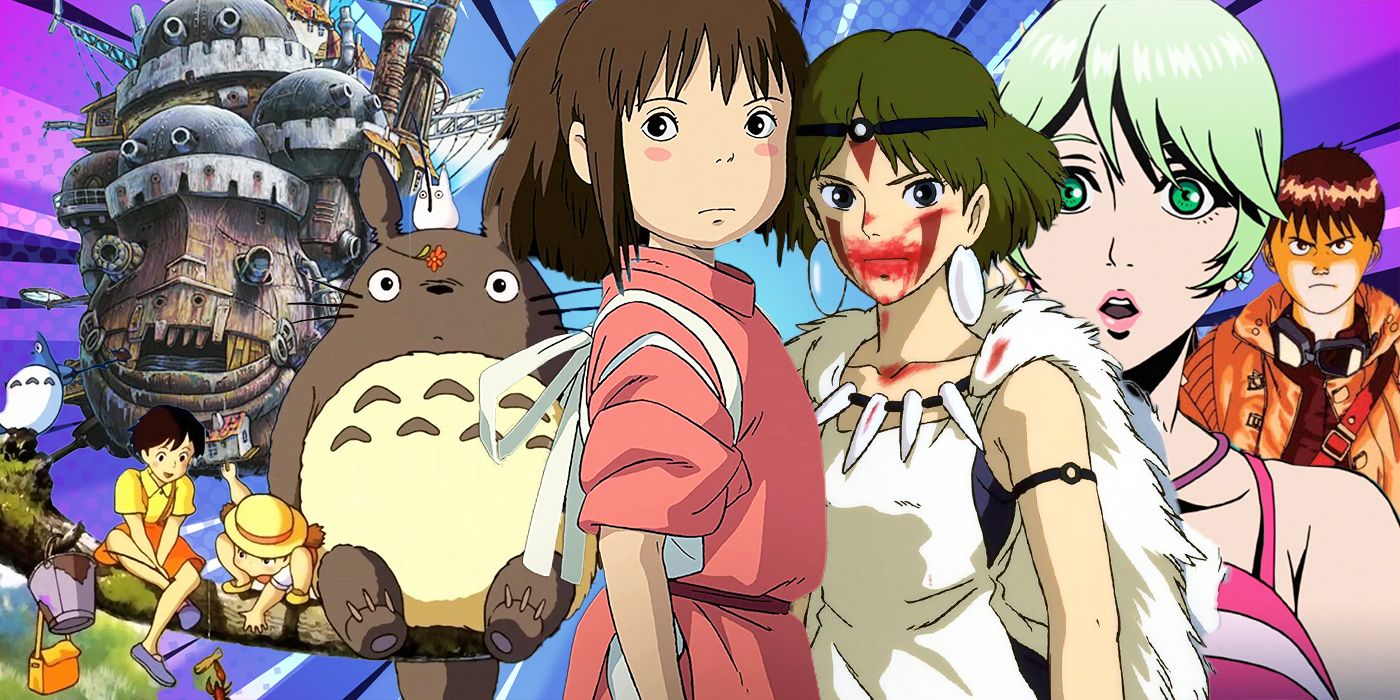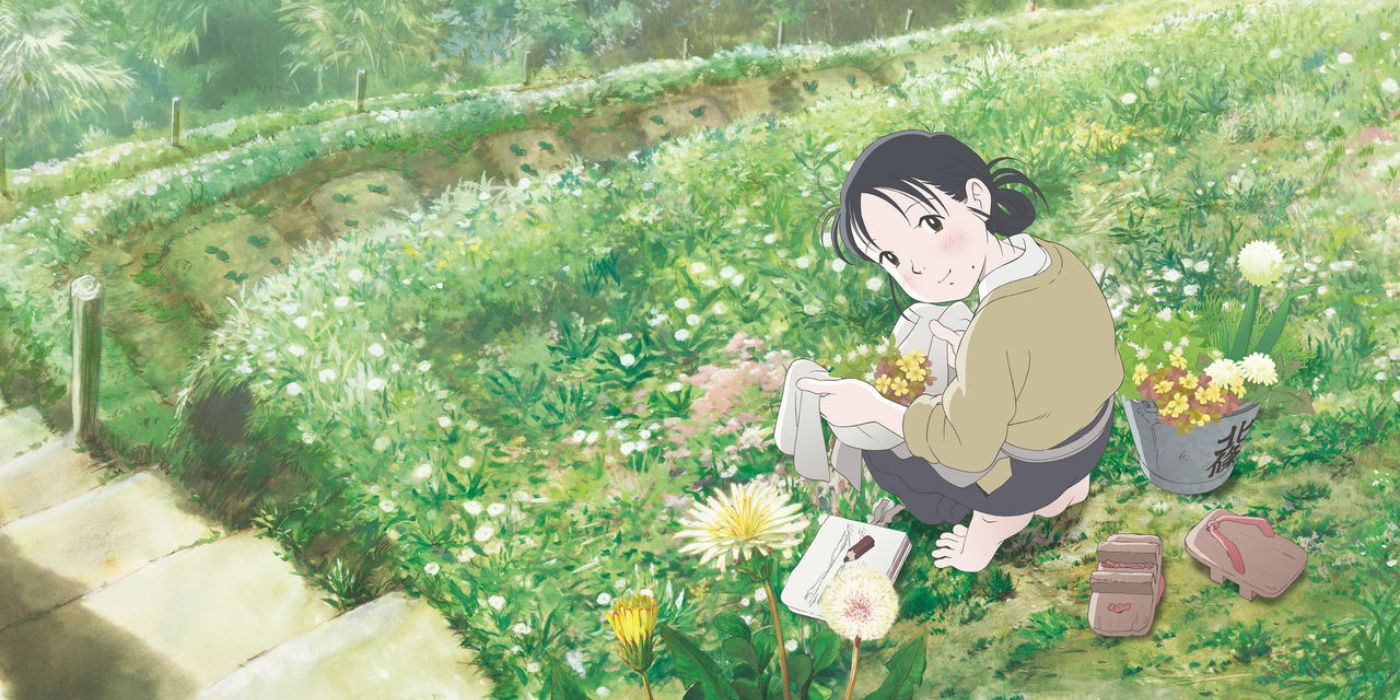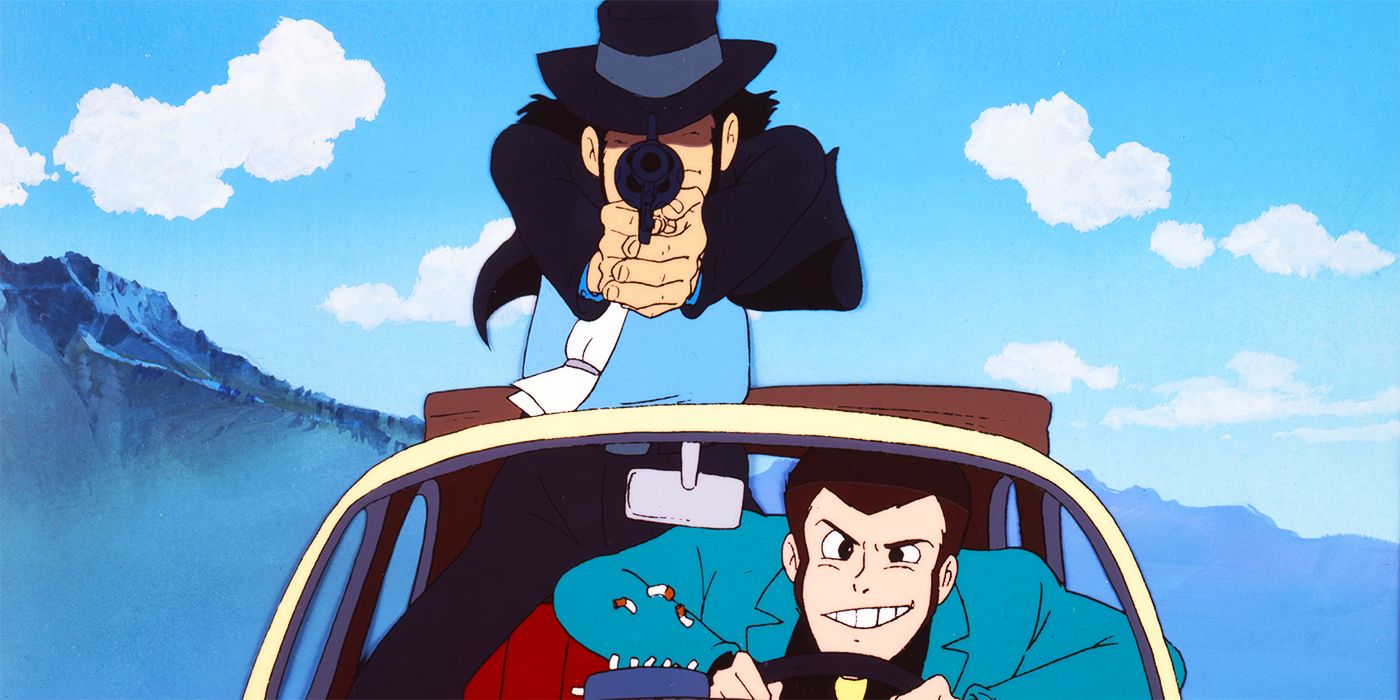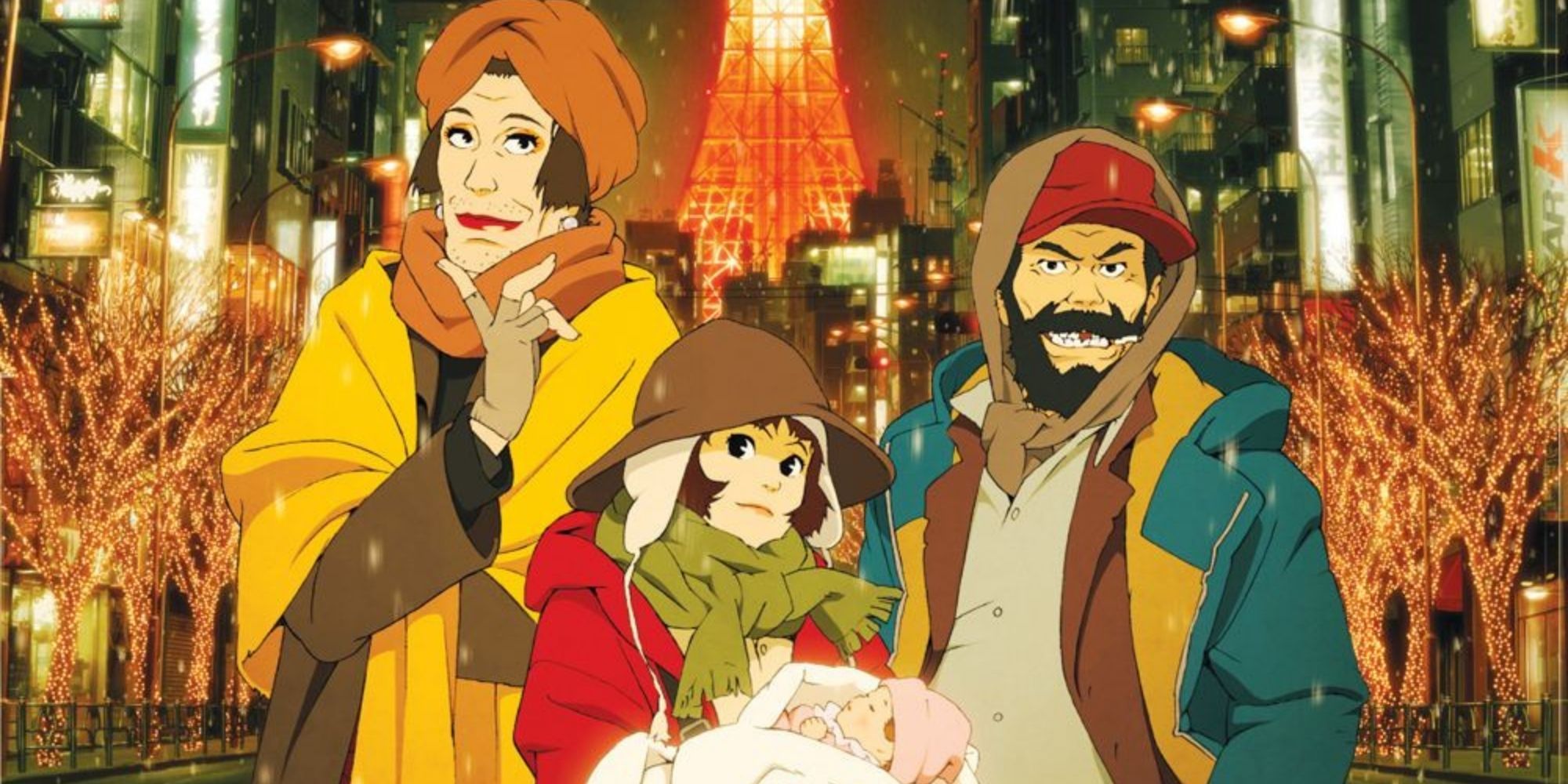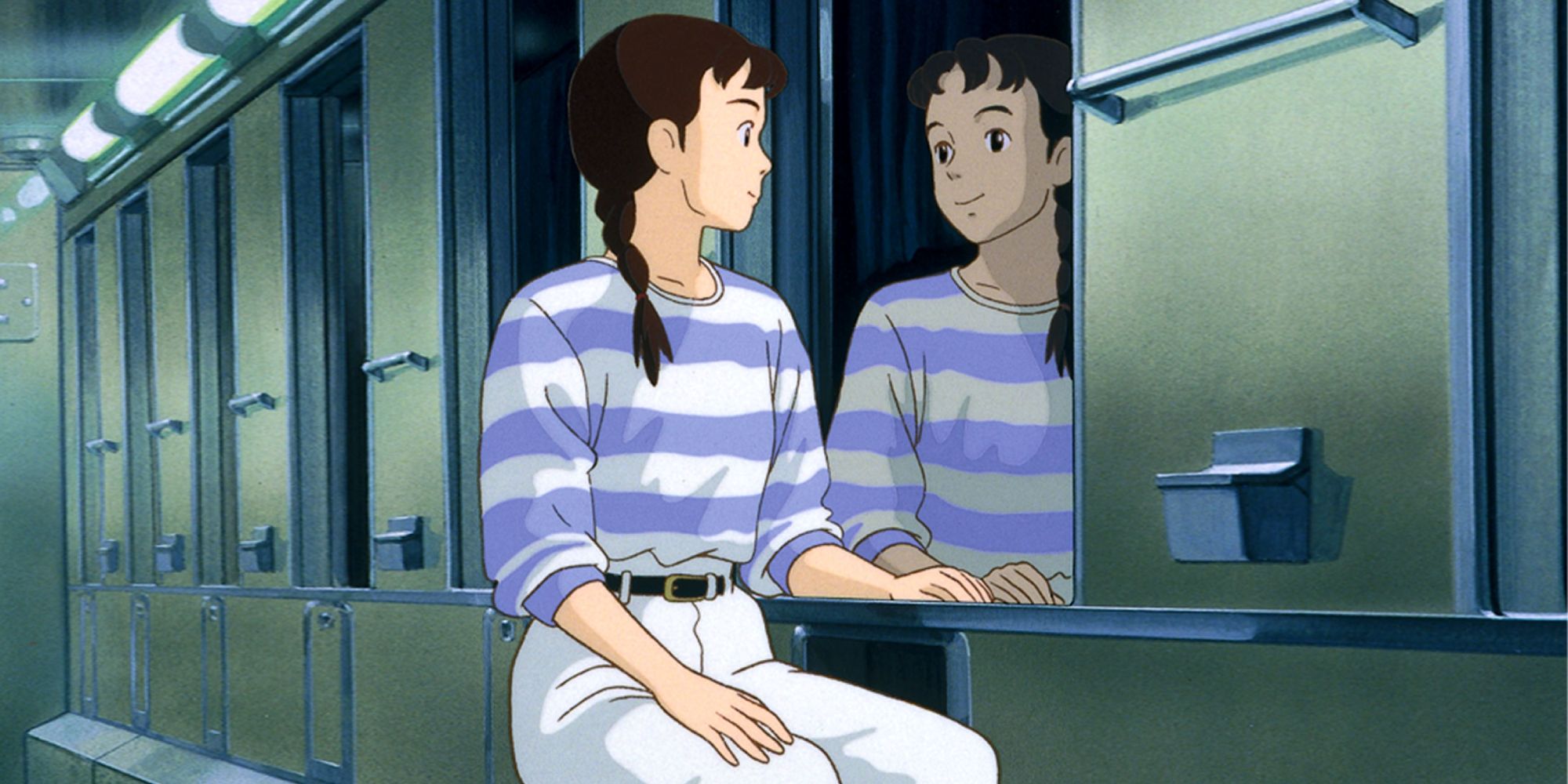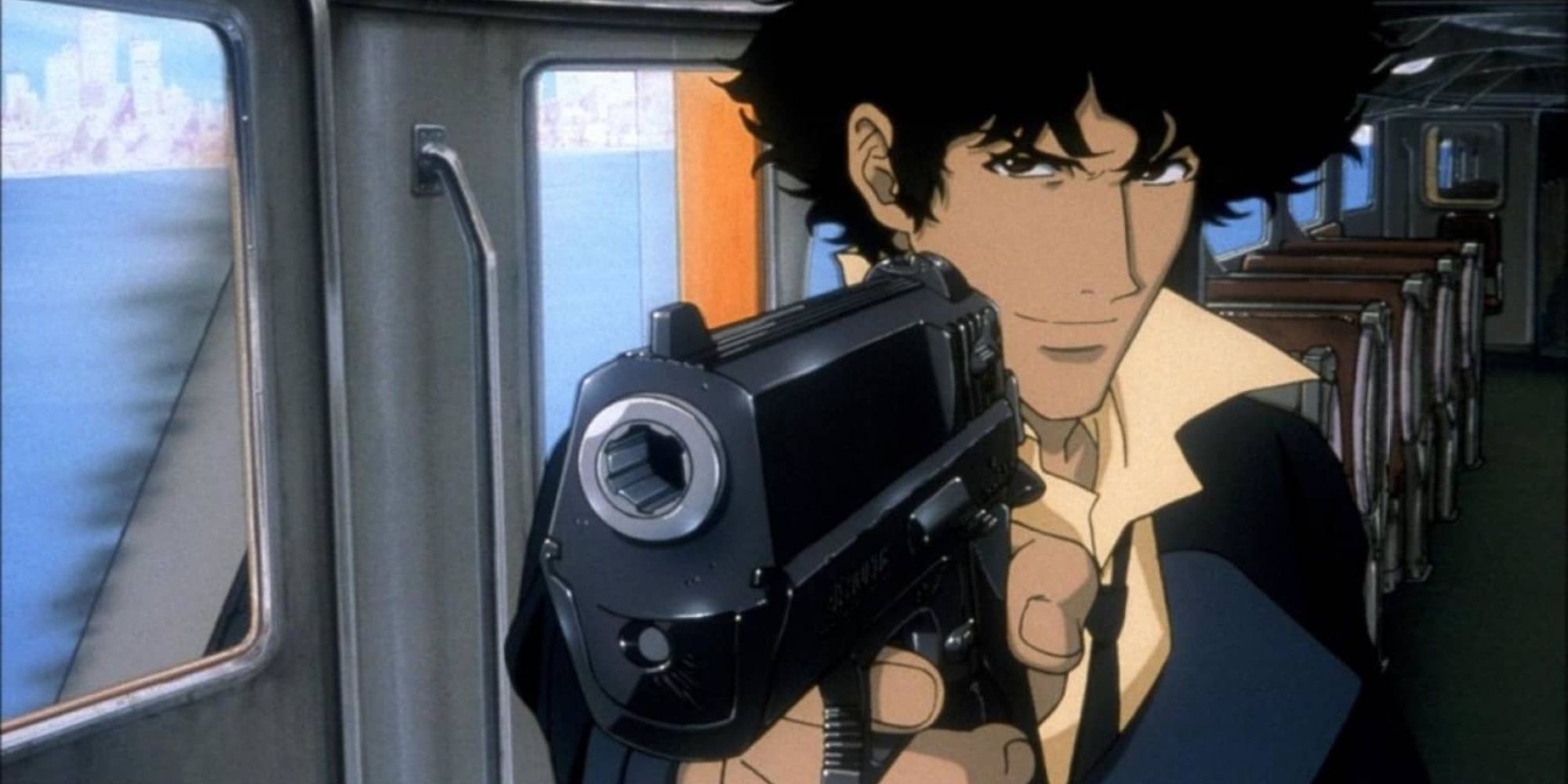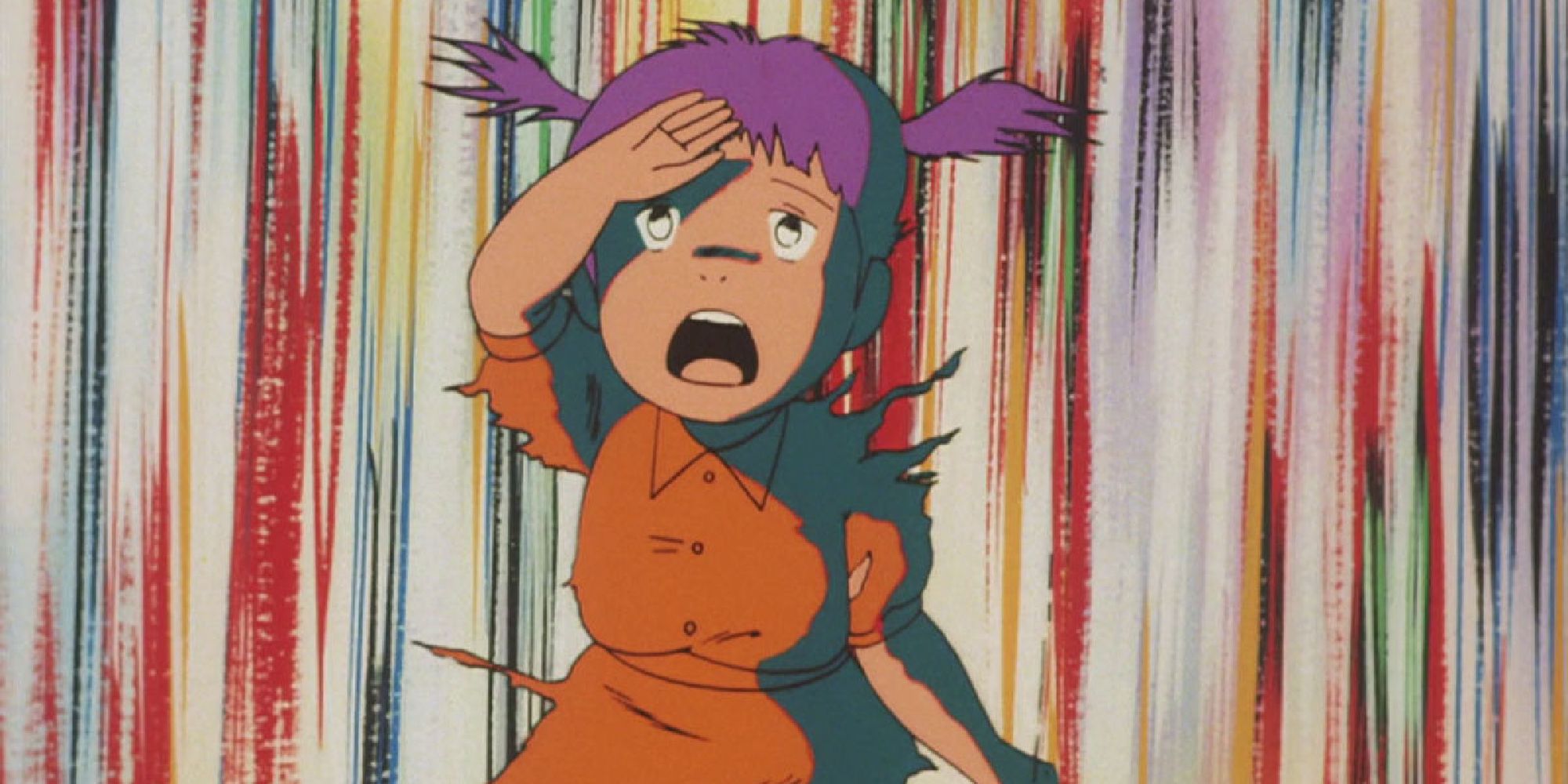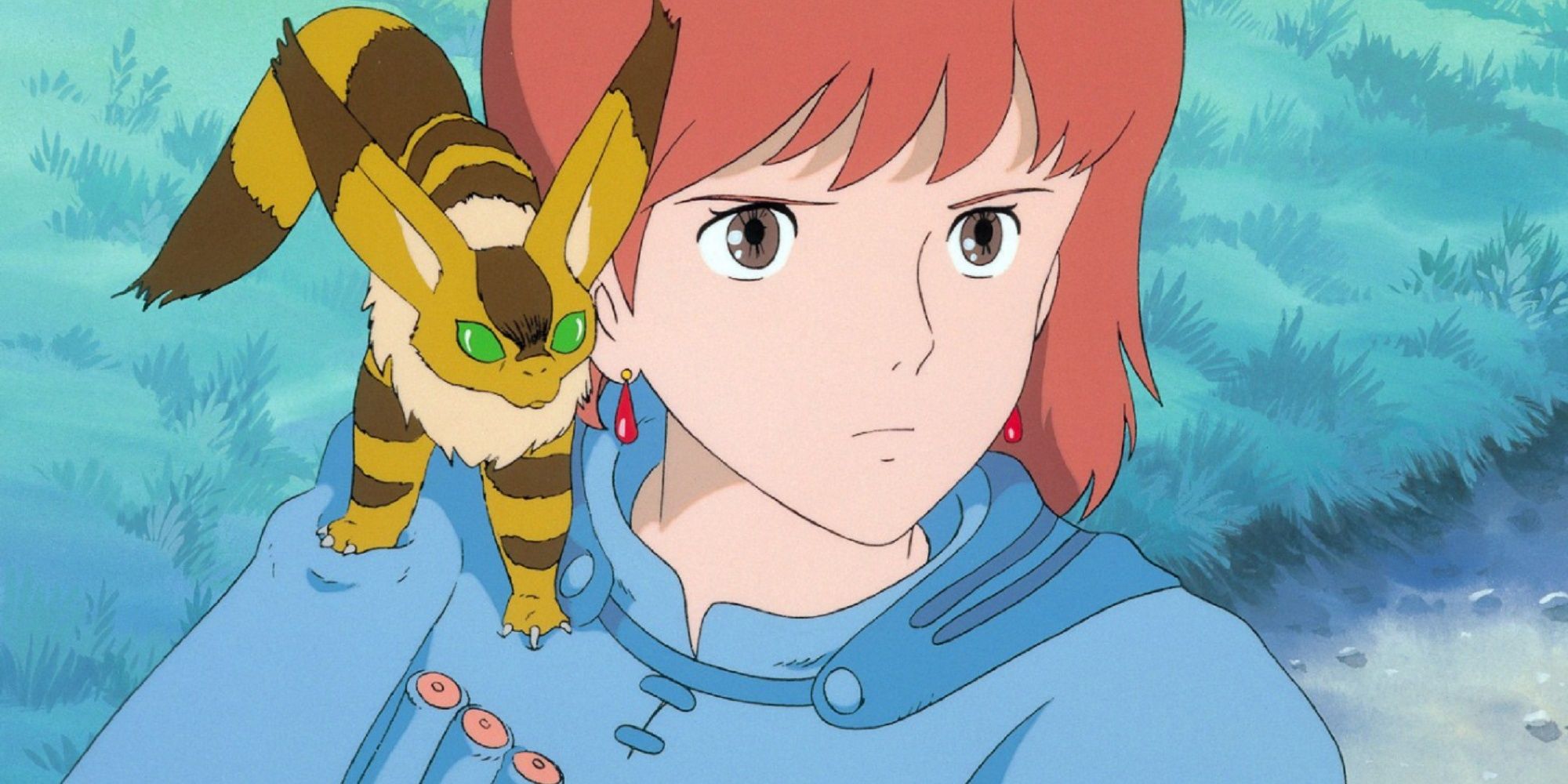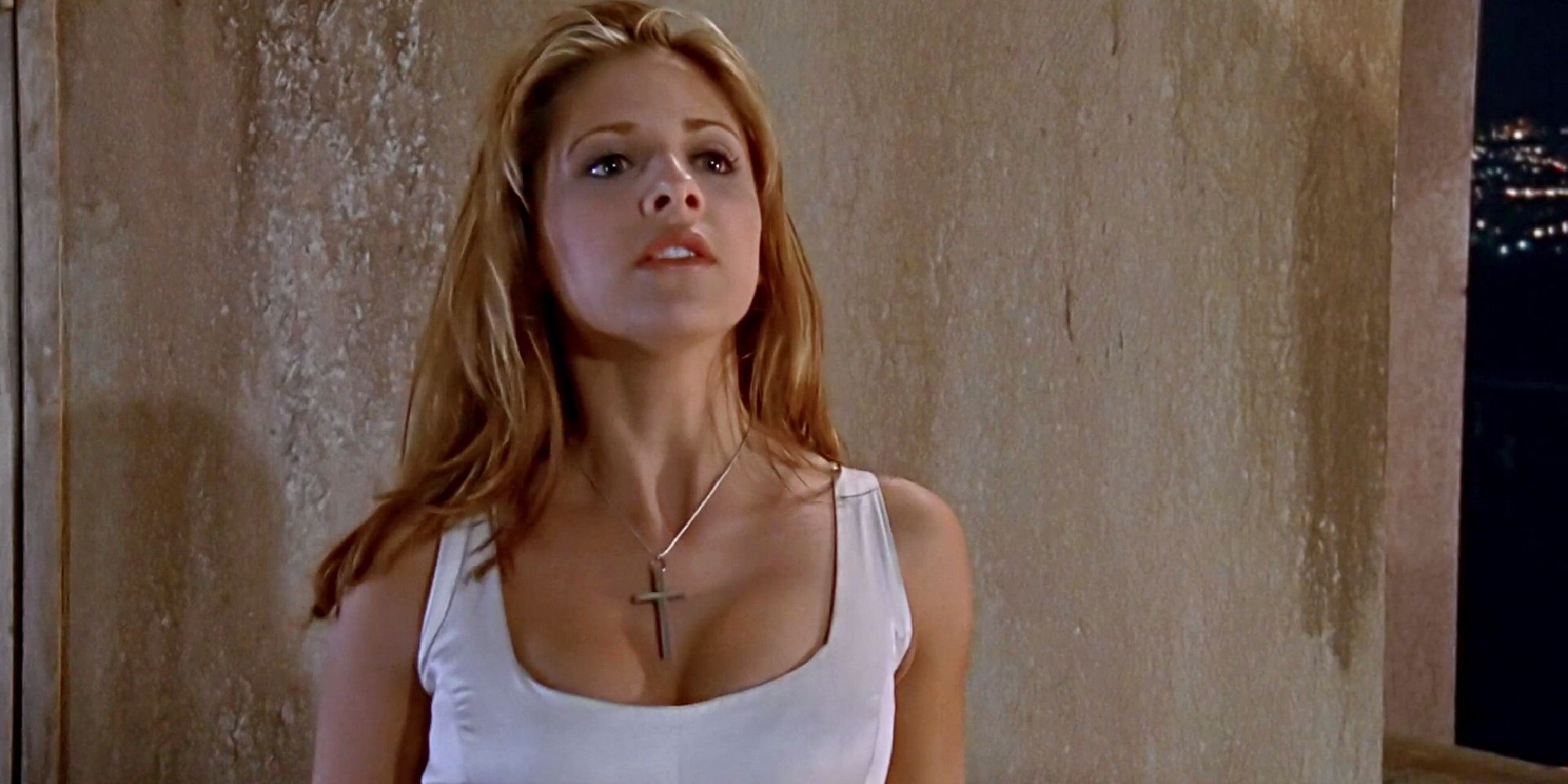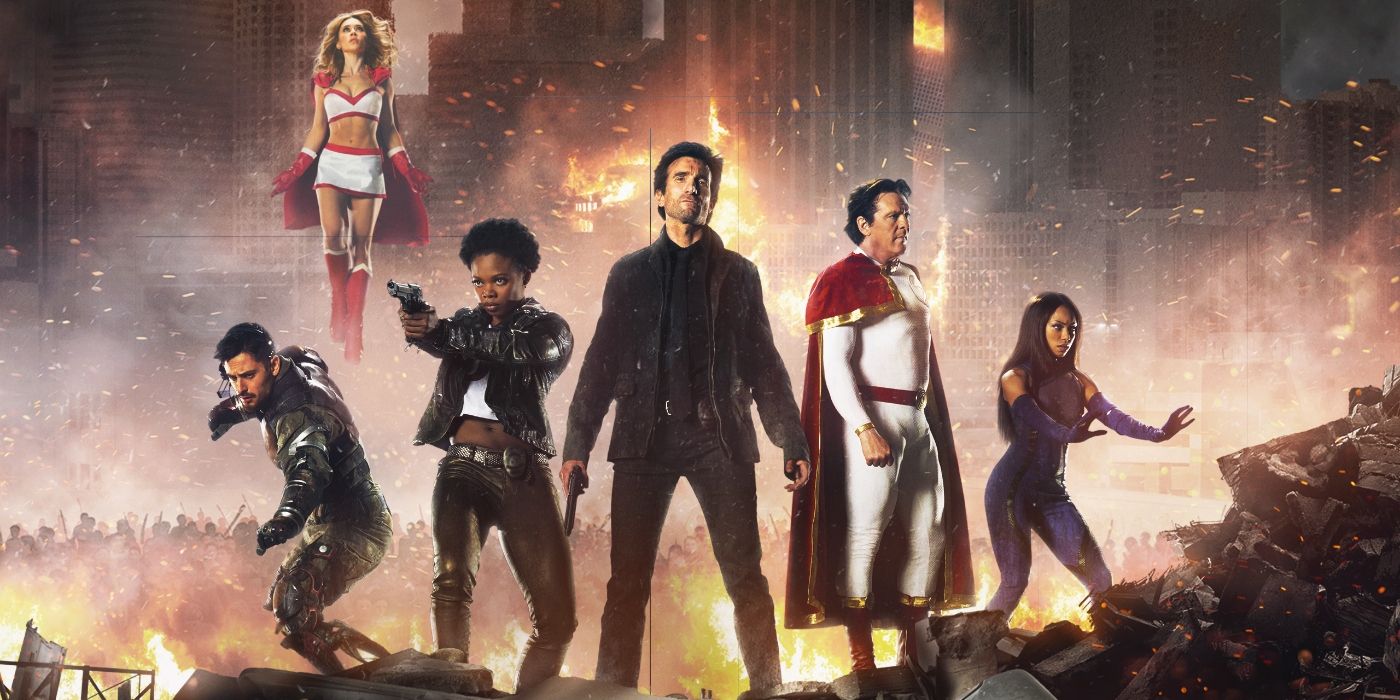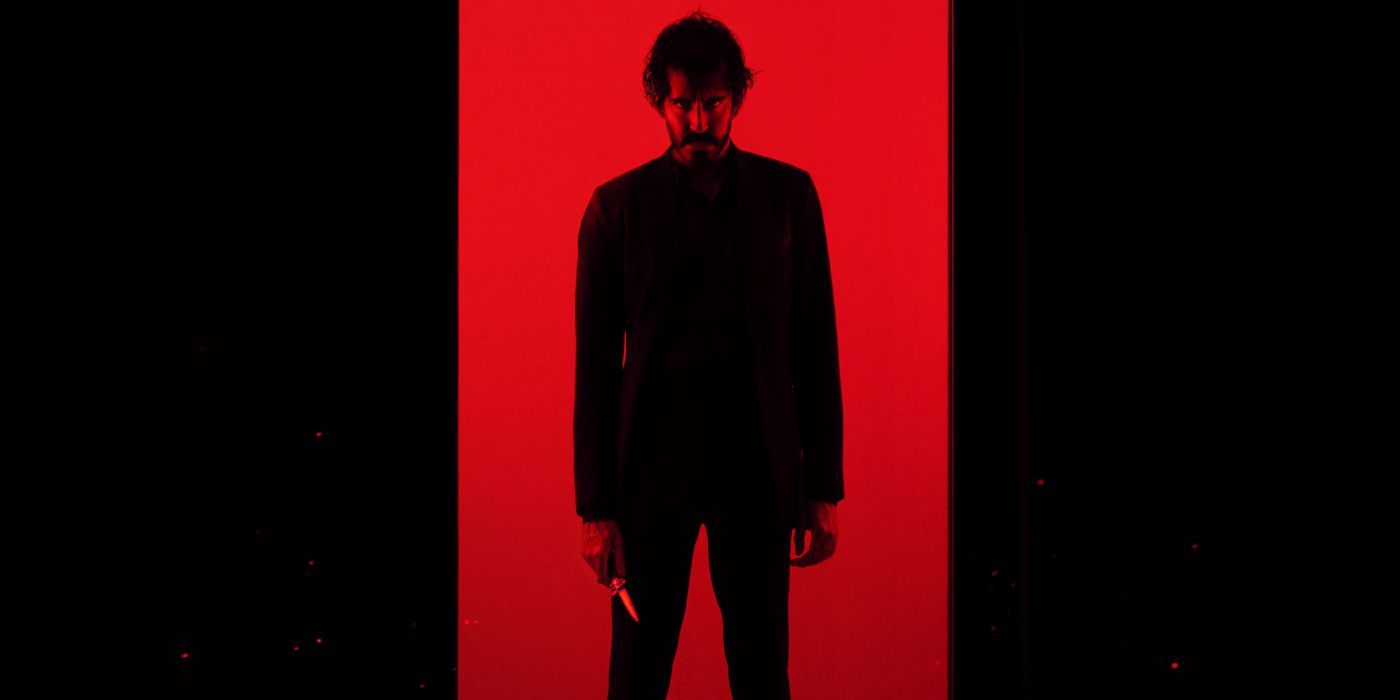For decades now, the Japanese film industry has produced some of the most remarkable animated movies of all time, to the point where the term “anime” has come to define animation specifically from Japan. Many of these great films have come from the mind of Hayao Miyazaki and others at the famed Studio Ghibli, but this is far from the only source of great anime movies. What follows is an effort to rank some of the greatest examples of anime from the medium’s rich history.
Japanese animation remains as popular as ever, with 2023 arguably being a particularly big year for the medium, thanks to the release of a new movie from Hayao Miyazaki, The Boy and the Heron. This makes it a great time to look at some of the best anime movies out there; indeed, the sorts of anime movies that you don’t even have to be a huge fan of anime to appreciate. It’s impossible to cover all the great ones within a single list, and it should also be noted that the following are movies only, with plenty of great anime also being released in the form of a TV series or miniseries. The following will highlight some of the best and most popular movies in this unique genre, and all provide good starting points for those wanting to explore the world of Japanese animation.
40 ‘On-Gaku: Our Sound’ (2019)
Director: Kenji Iwaisawa
The plot of On-Gaku: Our Sound is gleefully simple, centering on three friends who don’t seem to be doing much in life, and one day collectively agree to start a band together. They do this despite not having much by way of musical experience, but take their inexperience and turn it into a strength, playing minimal, basic music that ends up feeling very punk, in a way.
As a film, On-Gaku: Our Sound overall also has a punk spirit, with limited but striking animation, little concern about telling a complex story, and a deliberately offbeat sense of humor that probably won’t be for everyone. But for anyone who likes understated deadpan comedy punctuated with moments of borderline surreal absurdity, this quirky musical anime film might well be surprisingly appealing.
On-Gaku: Our Sound
- Release Date
- January 11, 2020
- Runtime
- 71
- Tagline
- And our ‘Our Sound’ begins
Rent on Apple TV
39 ‘Gunsmith Cats’ (1995)
Directors: Takeshi Mori, Kazuya Murata
Anyone looking for something to scratch the itch only a blending of comedy and action can should look into the underrated Gunsmith Cats, which functions as a movie – and is approximately 90 minutes long – yet was released as an OVA in three parts. The two lead characters are a pair of young women who run a gun shop, with the plot revolving around what happens when they’re roped into taking down a gun-running ring.
What follows is a breezy and never too serious ride, mixing solid banter with surprisingly good animation and a few well-executed action sequences to boot. Gunsmith Cats is a good time for anyone who wants to unwind with something that feels classic anime in some ways but surprisingly modern in other ways. Regarding the latter, the fact it doesn’t get nearly as sleazy as some other anime movies from around this same time would get (particularly those with female main characters) does have to be recognized.
Buy on Amazon
38 ‘Vampire Hunter D: Bloodlust’ (2000)
Director: Yoshiaki Kawajiri
Putting an extra dark, brooding, violent, and operatic spin on vampire lore in much the same way Francis Ford Coppola did with Bram Stoker’s Dracula, Vampire Hunter D: Bloodlust isn’t related to Dracula, but does have that same kind of spirit. The protagonist is a half-human/half-vampire, and his goal in the film is a simple one: track down a vampire and rescue the young woman he’s kidnapped.
Along the way, there are other competitors and threats, of course, but the story feels secondary to the immensely well-crafted world and atmosphere on offer in Vampire Hunter D: Bloodlust. It’s among the most striking-looking anime movies of the early 2000s, and successfully looks dark and ominous without ever feeling drab or colorless. The essential vampire anime movie is a feast for the eyes, and really, the solid storyline and characters attached to the whole thing really just end up serving as icing on an already great-looking cake.
Buy on Amazon
37 ‘In This Corner of the World’ (2016)
Director: Sunao Katabuchi
While it’s not the most well-known anime film to look at World War II through the eyes of younger characters, In This Corner of the World does do this effectively, and in a way that proves oftentimes moving. It takes place over numerous years, beginning in the 1930s and concluding with the end of World War II, showing how a young woman perseveres with life in Kure while Japan continues to fight in the global conflict.
In This Corner of the World works as a coming-of-age story, deals with family drama, looks at tragedy and the processing of grief that follows, and also becomes about finding connection with others during dark times. It’s presented in an interesting way that mostly works in getting the viewer inside the head of the main character, making the more emotional scenes hit even harder while feeling more intimate.
In This Corner of the World
- Release Date
- November 12, 2016
- Director
- Sunao Katabuchi
- Cast
- Non , Ava Pickard , Kenna Pickard , Karen Strassman , Melodee Spevack , Michael Sorich , Tony Azzolino , Anne Yatco
- Runtime
- 129 Minutes
Watch on Peacock
36 ‘The First Slam Dunk’ (2022)
Director: Takehiko Inoue
There are recognizable sports movie tropes and conventions found in The First Slam Dunk, but it would be unfair to call the film clichéd or formulaic. For one thing, its structure is fascinating, given the movie runs for two hours yet focuses on a single game of high school basketball. With the match playing out in what feels like real-time – or sometimes even slower – there are frequent flashbacks utilized to flesh out the players, with such backstories making the game even more compelling to watch, once viewers work out more and more who these guys are as people.
The First Slam Dunk builds to a fantastic climax, too, with the final scene being worth sitting through the whole movie just to get to. It helps that the rest of the movie is also very good, mind you, with the well-animated basketball sequences being equally compelling as the flashbacks, which deal with themes/ideas of family conflict, growing up, and coping with – as well as eventually overcoming – life-altering tragedies.
Watch in Cinemas
35 ‘Wolf Children’ (2012)
Director: Mamoru Hosoda
The premise of Wolf Children might sound outlandish on paper, but the film itself makes it work… somehow. It begins by telling a story about a young woman falling in love with a werewolf, and even having two children with him, only to find herself forced into the position of raising two unique children as a single parent after he abruptly passes away.
That fantastical set-up is key to getting the whole narrative in motion, but much of Wolf Children plays out like a grounded and oftentimes emotional family drama, being simply presented and told yet remaining effective when it comes to developing interesting characters and feeling emotional. It’s also noteworthy for having a surprisingly good English dub, for English-speaking viewers who might be concerned about the act of reading subtitles distracting from the visuals.
Watch on Crunchyroll
34 ‘Patlabor: The Movie’ (1989)
Directors: Mamoru Oshii, Kouji Sawai
Patlabor: The Movie is niche enough to probably qualify as a cult classic sci-fi/anime movie, and so it stands to reason that it’s unlikely to be the kind of thing that’ll appeal to everyone. It takes a fairly dry approach to the science fiction genre, and certainly features less action than most anime movies or shows that deal with mecha (large humanoid robots), but this does help it stand out.
It’s one part of the overall Patlabor franchise, and tells a story about various robots being potentially infected with a software virus that could lead to societal collapse in a futuristic Tokyo where such robots are essential to most areas of life. It explores engaging sci-fi ideas within a well-realized and presented world, and those who don’t mind mecha anime willing to take its time pacing-wise should find a good deal to latch onto here.
Buy on Amazon
33 ‘Neo Tokyo’ (1987)
Directors: Katsuhiro Otomo, Yoshiaki Kawajiri, Rintaro
An offbeat animated anthology movie that ultimately runs for less than an hour (yet doesn’t waste a second), Neo Tokyo is made up of three interesting stories that feel sometimes fantastical, and sometimes sci-fi-centered. The first shows a surreal fantasy adventure, the second revolves around a high-stakes futuristic race, and the third shows a workplace turned upside down by the introduction of robots tasked with doing the sorts of things humans used to do.
The first story is trippy, the second is probably the most explosive, and the third manages to be darkly funny and even a bit satirical. If anything, Neo Tokyo could probably get away with being a good deal longer – it might have been even better that way – but as it stands, it’s still pretty great overall, and definitely worth a watch for any anime fans pressed for time who still want to watch something that can technically be called a movie.
Buy on Amazon
32 ‘Evangelion: 3.0+1.0 Thrice Upon a Time’ (2021)
Director: Hideaki Anno
The Neon Genesis Evangelion series/franchise is an odd one that’s been consistently mutating and rewriting itself over many years at this point, with Evangelion: 3.0+1.0 Thrice Upon a Time being one of many endings for the series. It’s the fourth film in the Rebuild of Evangelion spin-off/remake series, which began by retelling events from the original TV series with a bigger budget and improved animation, but eventually branched off to seemingly become its own thing.
As a result of the way this four-film series progressed, Evangelion: 3.0+1.0 Thrice Upon a Time feels unlike anything else found within Neon Genesis Evangelion as a whole. It’s noteworthy for being one of the longest animated movies of all time, and for feeling a great deal more hopeful than much of the series – on TV or in film – had felt, which makes it a clean and oddly crowd-pleasing end (probably of the definitive variety… or maybe not) for the franchise overall.
Watch on Amazon Prime
31 ‘Lupin the Third: The Castle of Cagliostro’ (1979)
Director: Hayao Miyazaki
Not just a great animated movie, but also a surprisingly great crime/comedy movie in general, Lupin the Third: The Castle of Cagliostro is also notable for being Hayao Miyazaki’s debut feature film. It follows a master thief going on a grand adventure to steal various valuables from the titular castle, playing out like a humor-heavy heist movie.
It might not have the same level of polish in animation as future Miyazaki movies have, but it’s still dazzling to look at and creatively assembled. Those who want more Lupin the Third are in luck, too, considering it’s a huge franchise that began as a manga and now contains numerous movies (live-action and animated, and some surprisingly recent, too), anime series, and television specials.
Lupin the Third: The Castle of Cagliostro
- Release Date
- December 15, 1979
- Runtime
- 100 minutes
Watch on Hoopla
30 ‘Urusei Yatsura: Beautiful Dreamer’ (1984)
Director: Mamoru Oshii
Urusei Yatsura is a manga that, outside Japan, is certainly considered a cult series. It is, to put it mildly, quite bizarre and hard to summarize, broadly following an unlucky young man who accidentally proposes to an alien, and the adventures they subsequently get into. It was adapted into an anime series, and also got various theatrical films connected to the franchise.
The best – and perhaps strangest – of these is arguably Beautiful Dreamer, which sees the protagonist and his friends stuck in some sort of time loop in the film, with increasingly desperate attempts made to break free of a repeating day. Urusei Yatsura is relentlessly weird and zany, making for an exhausting yet absorbing watch, given the pace never slows down and few other animated movies out there have proven to be quite so full-on.
Watch on Tubi
29 ‘Metropolis’ (2001)
Director: Rintaro
2001’s Metropolis was based on a 1949 manga of the same name, which was only very loosely inspired by the groundbreaking 1927 Fritz Lang movie also of the same name (both movies are great works of science fiction). This 2001 movie feels like it combines inspiration from those two previous Metropolises, to some extent, making for a greatly fascinating and visually splendid animated movie in the process.
It takes place in the titular futuristic city, and has a premise concerning one mysterious young woman whom various parties are all searching for, for one reason or another. Its take on the science fiction genre is unique, despite it taking inspiration from a classic sci-fi movie and being based on a pre-existing manga, and it all makes for a great (and underrated) animated film.
Buy on Amazon
28 ‘Tokyo Godfathers’ (2003)
Director: Satoshi Kon
Satoshi Kon‘s impact on the medium of anime cannot be overstated, as while he only made a handful of films, they’re all incredibly well-regarded. Of his four feature films, Tokyo Godfathers might “technically” be the worst, but just saying that feels awful, because it can only be called the worst when it’s up against three other great movies that are somehow even better.
Tokyo Godfathers is a heartfelt and rewatchable dramedy film, and more grounded than many other anime movies out there. It’s about an unlikely trio banding together to reunite a lost baby with its parents on Christmas Eve, and finds a great deal of charm and emotion out of this seemingly simple set-up. Due to the setting and aesthetics, Tokyo Godfathers works as a surprisingly good Christmas movie; perhaps even the very best holiday-themed anime film of all time.
Tokyo Godfathers
- Release Date
- November 8, 2003
- Director
- Satoshi Kon
- Runtime
- 92
27 ‘Only Yesterday’ (1991)
Director: Isao Takahata
Another character-focused anime classic that serves as a charming coming-of-age/romantic drama, Only Yesterday is a mature and very grounded film. It follows a young woman looking back on her childhood while visiting her family, with the past and present colliding in a bittersweet fashion.
Those who need lots of action, explosions, or science fiction/fantasy elements in their anime films might not find a lot to latch onto here, but those looking for something more human and relatable will likely find this engaging. Only Yesterday is a pleasant film and a beautifully animated one, too, emerging as one of the best Japanese animation releases of the 1990s. For those who like their anime films quiet and understated, Only Yesterday has a great deal to offer, and is an overall bittersweet and tender movie.
Only Yesterday
- Release Date
- July 20, 1991
- Director
- Isao Takahata
- Runtime
- 118
26 ‘Cowboy Bebop: The Movie’ (2001)
Director: Shinichiro Watanabe
First and foremost, Cowboy Bebop is best known for being an anime series. It ran for 26 episodes between 1998 and 1999, and is frequently held up as one of the greatest – if not the greatest – anime series of all time, following a group of perpetually unlucky bounty hunters traveling the galaxy in the 2070s.
It was a series that ended incredibly well (and conclusively), meaning that for the 2001 movie, it had to serve as an “interquel” of sorts (not completely a sequel, and not completely a prequel). It plays out like an extra episode of the show (and a good one) but feature-length, instead of approximately 25 minutes. It’s not the very best that Cowboy Bebop has to offer, but as an opportunity to spend more time with the characters and the show’s world, it’s pretty great.
Cowboy Bebop: The Movie
- Release Date
- September 1, 2001
- Director
- Shinichirô Watanabe , Hiroyuki Okiura
- Cast
- Steve Blum , Martin Halm , Bruno Mullenaerts , Koichi Yamadera , Beau Billingslea , Unshô Ishizuka
- Runtime
- 116
Watch on Tubi
25 ‘Interstella 5555: The 5tory of the 5ecret 5tar 5ystem’ (2003)
Director: Kazuhisa Takenouchi
Daft Punk may have released their final album in 2013 and sadly announced they were no longer a duo in 2021, but their legacy lives on. Their music is undeniably catchy and timeless, and during their time as an electronic music duo, they also branched out into the world of film, demonstrated by Interstella 5555: The 5tory of the 5ecret 5tar 5ystem.
Interstella 5555 is a musical/sci-fi/anime film, thrillingly blending genres to tell a story about an alien band who travel across space to rescue one of their own. The audio is essentially just the duo’s 2001 album Discovery, and it otherwise doesn’t have any dialogue or many sound effects. It’s a unique, fun, and colorful anime movie, and a must-watch for Daft Punk fans, feeling like something of an animated musical, and a genuinely entertaining one at that.
Buy on Amazon
Director: Mori Masaki
Anti-war films attempt to be as unflinching and harrowing as possible, and Barefoot Gen‘s no exception. It follows the aftermath of the bombing of Hiroshima at the end of World War Two, and in particular centers on a young boy’s attempts at surviving after much of his family is killed in the attack.
The sequence depicting the bombing itself is notorious for being one of the most disturbing animated sequences of all time, and the rest of the film doesn’t exactly pull any punches either. Barefoot Gen is a sad but important movie, and is even more powerful when watched with the knowledge that it was based on the real-life experience of Keiji Nakazawa, who wrote the original manga of Barefoot Gen, and himself was only six when he experienced firsthand the bombing of Hiroshima.
Barefoot Gen
- Release Date
- June 13, 1992
- Director
- Mori Masaki
- Cast
- Issei Miyazaki , Catherine Battistone , Yoshie Shimamura , Iona Morris , Masaki Kôda , Brianne Brozey , Barbara Goodson , Takao Inoue
- Runtime
- 83 Minutes
Watch on Cineverse
23 ‘Belladonna of Sadness’ (1973)
Director: Eiichi Yamamoto
Belladonna of Sadness is a dark and intense anime that could be broadly defined as belonging to the fantasy genre while also dealing with the theme of revenge. It’s about a young woman making a deal with the devil to transform herself into a form that can enact violent vengeance against a lord who wronged her horrifically.
Belladonna of Sadness‘ intense story means it’s certainly not for everyone, and the unique style of animation also adds to the film’s eeriness and often uncomfortable quality. Yet it deserves acclaim for being groundbreaking and risk-taking, and also for being one of the earliest anime films that still holds up very well today. Belladonna of Sadness is also notable for having some well-known Japanese actors in its voice cast, including the talented Tatsuya Nakadai (of Harakiri and Ran fame).
Rent on Vudu
22 ‘Angel’s Egg’ (1985)
Director: Mamoru Oshii
Anime doesn’t get much more obscure or light-on-narrative as Angel’s Egg. It doesn’t exactly have a story, and is more about depicting a foreboding atmosphere for its relatively brief 71-minute runtime. There is a premise at least: it simply involves a young girl carrying a large egg through a desolate wasteland.
Viewers are more or less asked to come up with their own thoughts about what anything here could mean, or failing that, it’s easy just to get lost in the dark and distinct mood of the film. It feels like a cross between anime and arthouse, and is the kind of movie that would fit neatly within the famed Criterion Collection. To call Angel’s Egg a strange and alienating experience would be a great understatement, but it undeniably provides an experience that few other films – anime or otherwise – have.
Buy on Amazon
21 ‘Nausicaä of the Valley of the Wind’ (1984)
Director: Hayao Miyazaki
It’s hard to give a rundown of great anime movies without including numerous films directed by Hayao Miyazaki. Nausicaä of the Valley of the Wind is one of his earliest feature films, and while it might not be his very best, it’s still up there, and clearly displays many of the qualities that his later films would also demonstrate.
It’s a fantasy/adventure movie with a strong environmental message, and follows the people of one of Earth’s last strongholds trying to survive against the forces of a poisonous nearby jungle. It’s a good story that provides food for thought thematically, and like all Miyazaki movies, it also aims to overwhelm viewers with constant beautiful images. Slightly clunky title aside, Nausicaä of the Valley of the Wind is a great early Miyazaki film, and one well worth seeking out.
Watch on Max

